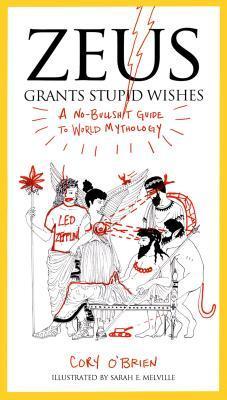
Mythos: The Greek Myths Retold
Book Description
Unleash the gods and goddesses of ancient Greece in a dazzling retelling that ignites the imagination. Stephen Fry weaves a tapestry of betrayal, love, and relentless ambition as heroes rise and fall amidst divine machinations. Witness the thunderous wrath of Zeus, the cunning schemes of Athena, and the tragic fate of mortals caught in their epic struggles for power and revenge. Each chapter pulses with passion and drama, bringing the timeless myths to vivid life in a way that captivates and enthralls. Can ambition ever be quenched, or do the true gods always have the final say?
Quick Book Summary
Stephen Fry’s "Mythos: The Greek Myths Retold" is a vibrant reimagining of classic Greek myths for a modern audience. With clarity and wit, Fry brings the legendary gods, goddesses, titans, and mortals of Olympus to life, blending ancient tales with fresh humor and insight. Beginning with Chaos and the birth of existence, Fry explores the intricate family dramas and cosmic rivalries that shape the mythological world, recounting stories ranging from Prometheus’s daring theft of fire to the cunning escapades of Hermes. The book unfurls the origins of familiar myths that still resonate, exposing the humanity, ambition, and folly of the immortals and their mortal counterparts. Fry’s narrative voice not only entertains but illuminates the myths’ enduring influence on art, language, and Western thought, making the ancient tales vivid and accessible.
Summary of Key Ideas
Table of Contents
- 1. Origins and Creation: Chaos, Titans, and the Olympian Order
- 2. Divine Personality and Foibles: The Gods as Flawed Characters
- 3. Interaction of Gods and Mortals: Consequences and Moral Lessons
- 4. Transformation and Metamorphosis: Change as a Central Theme
- 5. Lasting Legacy: Influence on Western Culture and Language
Origins and Creation: Chaos, Titans, and the Olympian Order
Fry opens with the primeval world of Chaos, detailing the emergence of primordial beings like Gaia, Uranus, and the Titans. Their power struggles set the foundation for the Olympian gods’ reign. The cosmic wars, family betrayals, and the eventual overthrow of Cronus by his son Zeus establish the hierarchy in Olympus. Fry highlights creation myths, explaining how mortals, animals, and the Earth itself came to be, grounding legend in questions of origin and existence.
Divine Personality and Foibles: The Gods as Flawed Characters
A central thread is the vivid characterization of the gods, who are portrayed with distinct personalities and all-too-human flaws. Fry delves into the temperamental Zeus, the clever wit of Hermes, the jealousies of Hera and Aphrodite, and the creative genius of Hephaestus and Athena. Through these depictions, Fry emphasizes that the immortal rulers are anything but perfect, driven by passions, rivalries, and insecurities that mirror those of humans.
Interaction of Gods and Mortals: Consequences and Moral Lessons
The relationship between gods and mortals occupies much of the narrative, with Fry retelling tales of Prometheus, Pandora, and mortal heroes ensnared by divine schemes. These stories reveal recurring themes: the dangers of hubris, the unpredictable consequences of divine intervention, and the moral ambiguities inherent in myth. Fry demonstrates how gods frequently alter the fates of humans, balancing punishment with favor, and often blurring the lines between justice and caprice.
Transformation and Metamorphosis: Change as a Central Theme
Transformation recurs as a motif—both literal and metaphorical. Gods change shape, mortals become animals or natural formations, and the world is constantly remade by divine actions and emotions. Fry’s retellings of myths like Daphne and Apollo, or Narcissus and Echo, underline metamorphosis as both punishment and escape, highlighting the fluidity of identity and the unpredictability of existence in myth.
Lasting Legacy: Influence on Western Culture and Language
Throughout, Fry illuminates the profound impact of Greek mythology on language, art, and Western cultural imagination. By drawing connections to familiar words, idioms, and archetypes, he demonstrates that these ancient stories still inform how we interpret love, ambition, creativity, and fate today. Fry’s lively narration ensures that the timeless tales remain accessible, resonant, and essential for a modern audience.
Download This Summary
Get a free PDF of this summary instantly — no email required.





